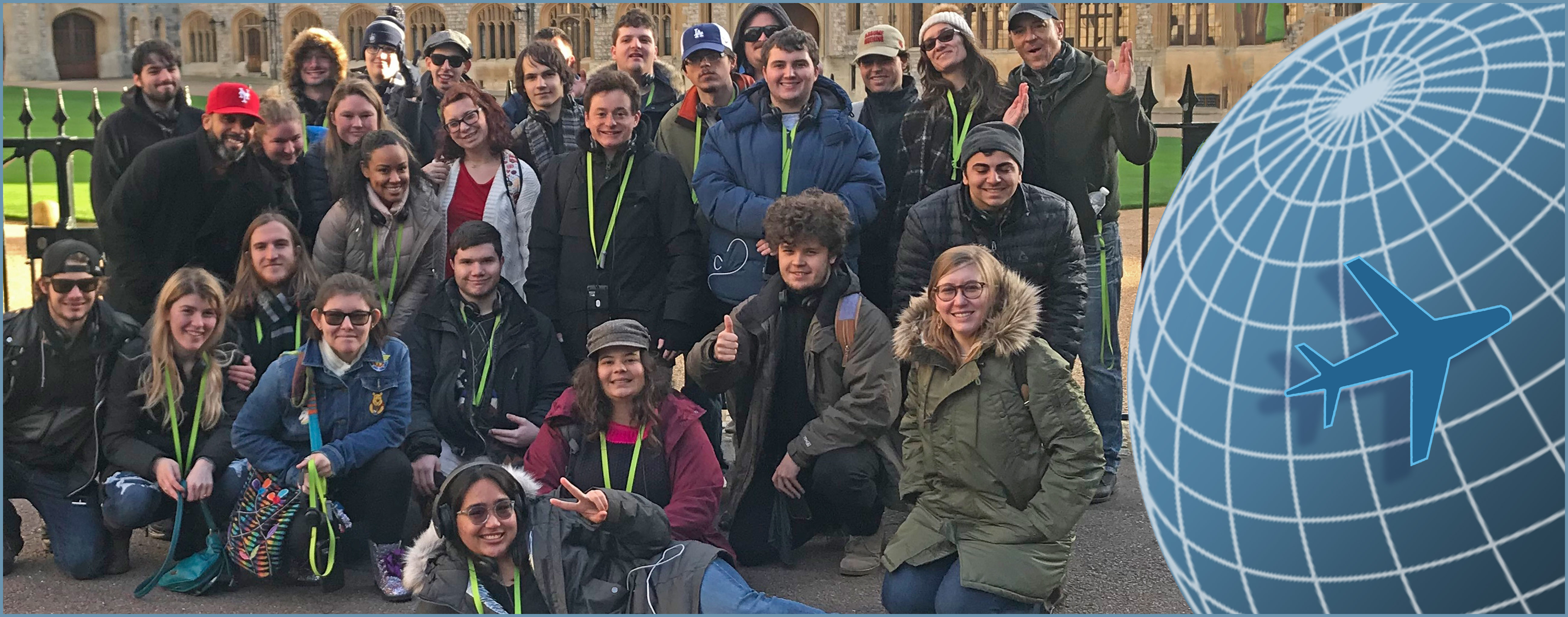
- Staff Contribution, CIP Bloomington
Packing It All In: Traveling Tips for Neurodiverse Students
While traveling to different areas of the world can be completely enjoyable for some, it often presents its own challenges. This is particularly important to remember while traveling with neurodiverse individuals.
Recently, I traveled to Edinburgh and London with twenty-four students from CIP’s Global Engagement Program. We learned that new experiences can be challenging, the world loud and fast, and that there is something special to be said about how our students continually persevere.
While traveling can be completely enjoyable for some, it often presents challenges. This is particularly important to remember while traveling with neurodiverse individuals. However, with adequate support and a little push, neurodiverse people can have a positive experience in new places. This rang true for the students who traveled on the trip. Students, while challenged, were grateful to make new connections, delve into European history, and visit the sites they had learned about.
Planning and Prioritizing
While any trip requires flexibility and room for error, attempting to plan most things while focusing on details can provide a firm expectation for your student. Students may then experience a decrease in anxiety, be more willing to show flexibility and enjoy the trip even more.
- Create a concrete schedule of events.
- Involve your student & consider their feedback.
- Gently push them to step out of their comfort zone.
- Prioritize the larger details, and make time to figure out the smaller details.
Persisting and Monitoring
Our tours were well-structured, yet still allowed for exploration. With this freedom to explore, students felt slightly overstimulated. There were new people, new places, new cuisines - it seemed like everything was new! This is very common - even for neurotypical individuals. It is vital to keep in mind that we all experience the world differently and a lot of stimulation can lead to a lot of overwhelming feelings.
- Plan for and take breaks.
- Build in extra downtime if your trip will include a time change.
Emotional Regulation
Experiencing a new part of the world forces one to be extremely flexible. Our students’ new experiences included wandering around the castle grounds of Edinburgh, figuring out the tube system in London, and trying haggis.
- Give yourself care and empathy.
- Provide extra support and empathy for your student.
Reflecting
While traveling to a new part of the world will promise surprises, planning, structure, and downtime can make all the difference for neurodiverse individuals.
- Students should be encouraged to try new activities. Be compassionate.
- Understand that your student may push back, but should be held accountable to the agreed-upon plan.
At the end of the day, traveling is completely enjoyable, but it always feels good to get back home.
About College Internship Program
The College Internship Program is a comprehensive transition program for young adults on the Autism Spectrum and with Learning Differences. Our Mission is to inspire independence and expand the foundation on which young adults with Autism, ADHD, and other Learning Differences can build happy and productive lives.
Related Articles
- How One Family’s Journey Reflects the Power of Community and the Impact of CIP
- The Impactful Journey of Indiana University Social Mentoring Interns at CIP Bloomington
- Summer@CIP: Inside look at previous summer daily schedules - Indiana University Edition!
- Navigating the Transition to Independent Living
- In the News: Adults with autism, learning differences find support at CIP Bloomington

